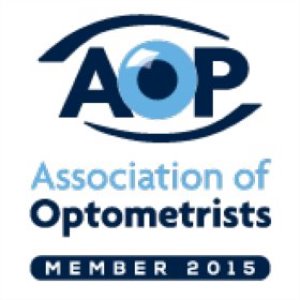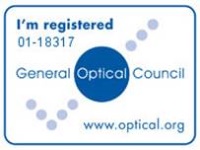
Glaucoma – notice loss of peripheral vision
(courtesy of National Eye Institute)
Glaucoma is a disease of the optic nerve which is responsible for transmitting what your eye sees, to the visual cortex in your brain.
There are different types of glaucoma, but the most common one is known as Primary Open Angle Glaucoma (POAG).
A person who develops POAG may be unaware that they have this disease, as there are NO symptoms to begin with, and even the slow loss of their peripheral vision may go unnoticed.
If left with no medical intervention sight will be completely lost over time. However, a visit to the opticians allows for this disease to be identified and thus allow medical intervention, via the Eye Hospital, to retain whatever sight is presently there.
It is NOT possible to repair the damage that has already been done. This is why everyone aged 40+ should have a regular eye examination to check for any signs of glaucoma.
If there is a family history of glaucoma, then regular eye tests are strongly advised. Once a year FREE NHS tests are available for these patients.
If a person is of Afro-Caribbean or Asian descent (who have been identified as more at risk of developing Glaucoma), regular eye tests are important to check for any early signs of the disease.
Normal Tension Glaucoma
This is when Glaucoma develops with Normal eye pressures present. So even when your eye pressures are normal you may still have Glaucoma. This is where your optician will assess the optic nerve directly during your eye examination, and carry out a Field Of Vision test.
Closed Angle Glaucoma
This is less common, but it can have an immediate detrimental effect on your sight if left untreated. This is when fluid that normally drains out at the front of your eye is restricted. This can lead to a sudden rise in eye pressure causing severe eye pain and headache which requires urgent medical attention to prevent sight loss.
If you are at all concerned about Glaucoma, please make an appointment to visit us.






